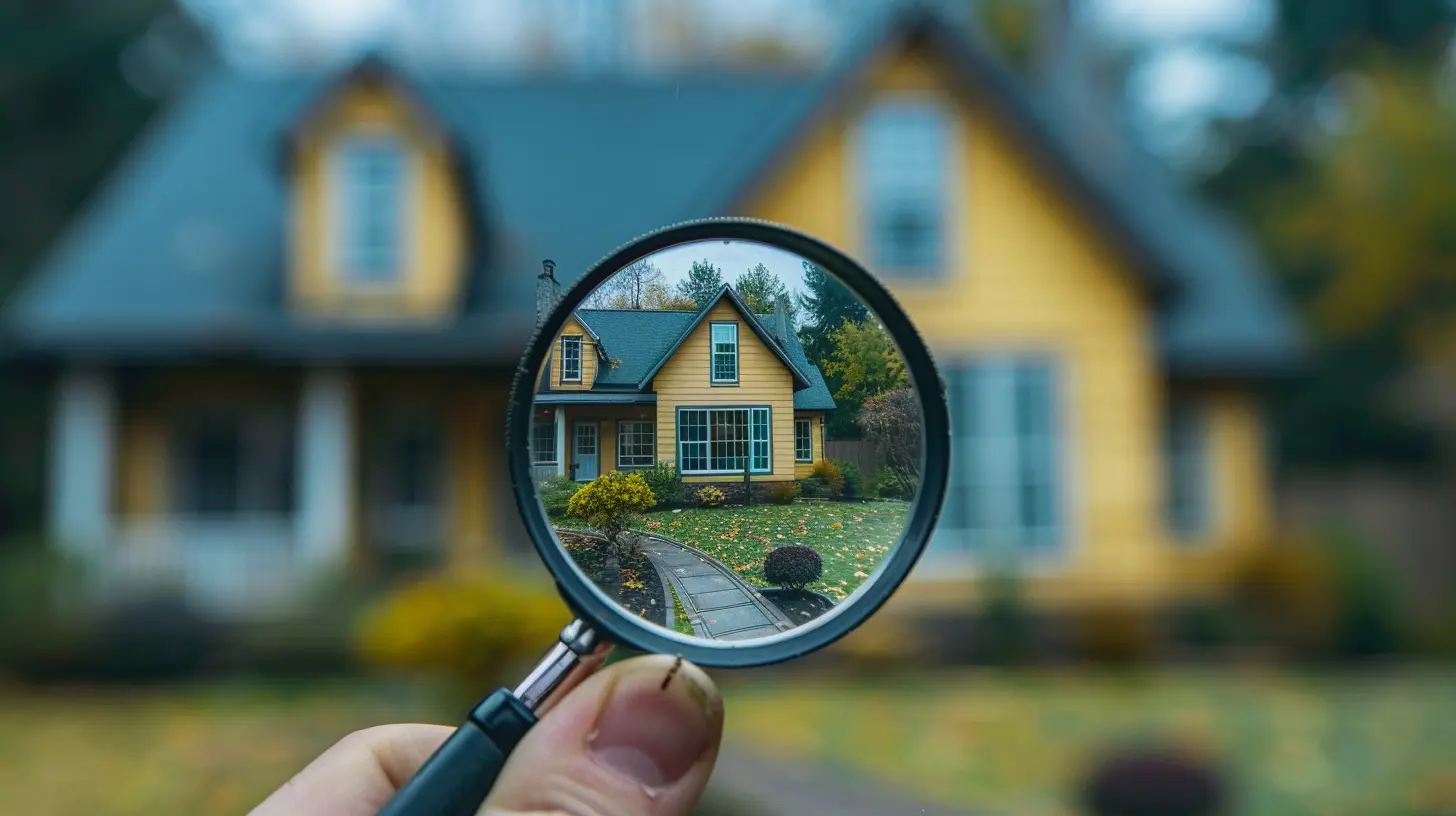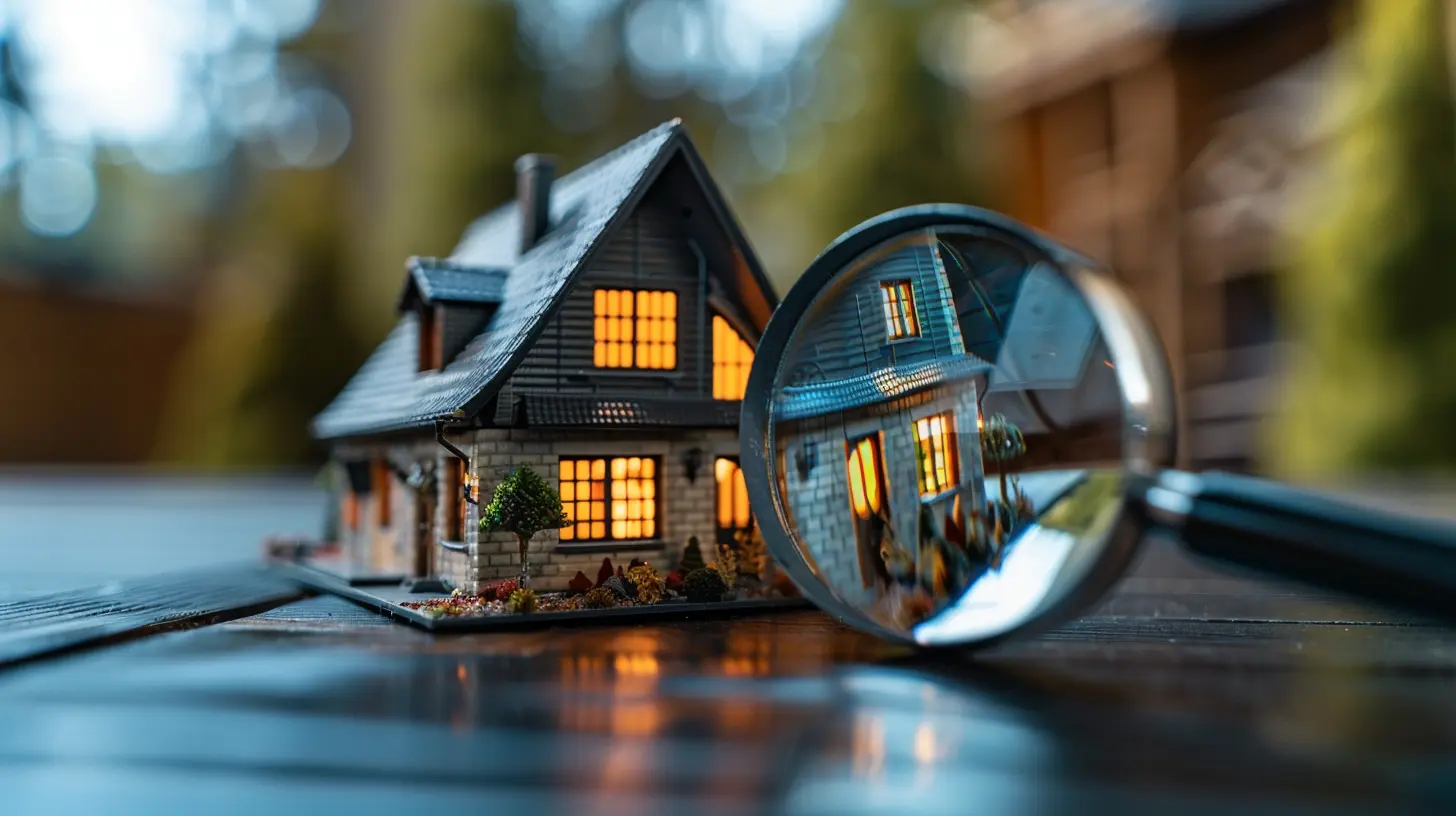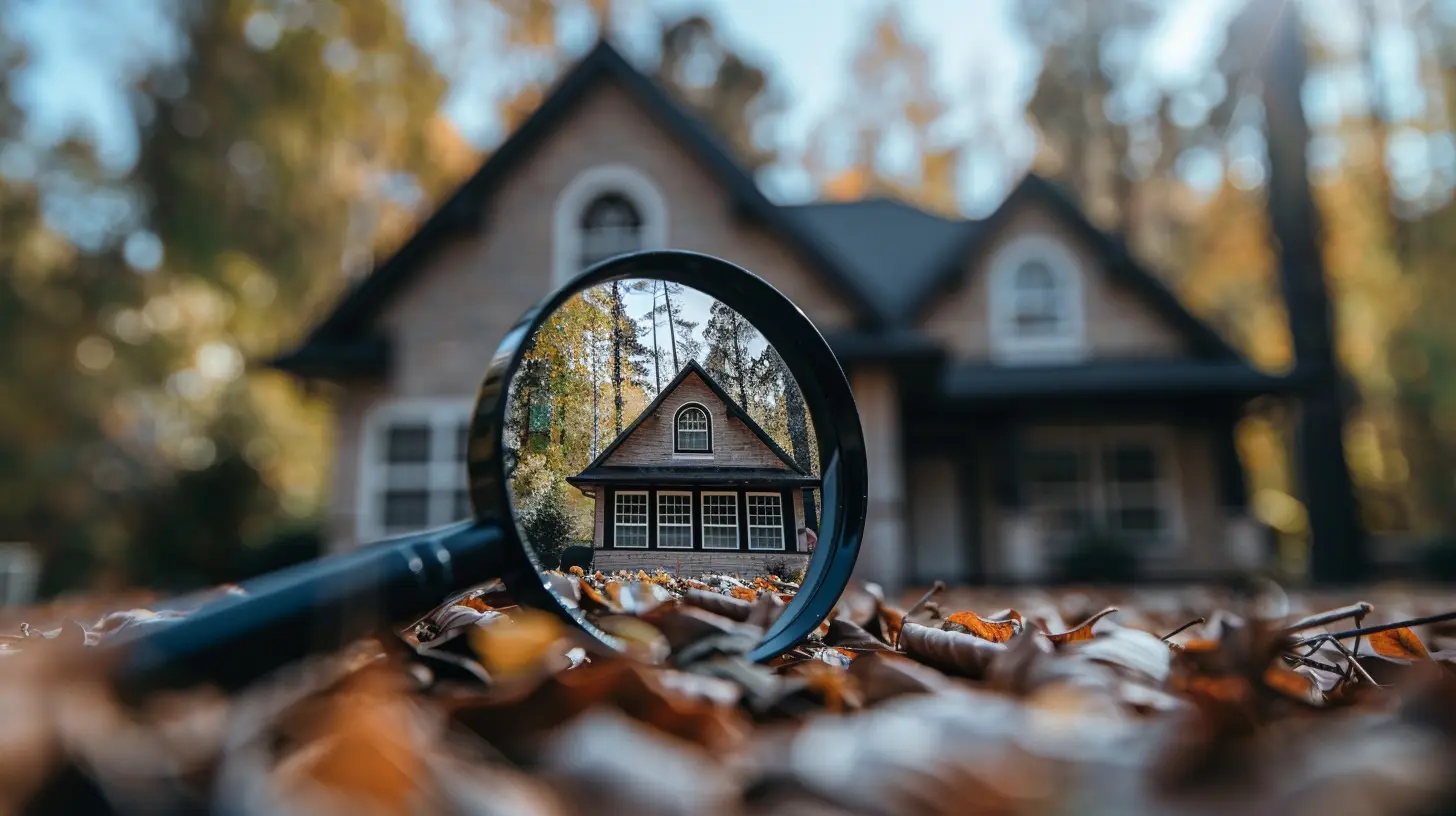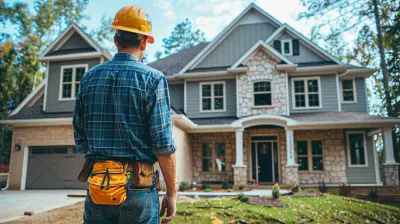5 December 2024
So, you’ve found your dream home. It’s got the wraparound porch, the perfect-sized backyard, and that kitchen you’ve been ogling in design magazines for years. But before you pop the champagne and start visualizing your furniture layout, there’s one crucial step you can’t skip: the home inspection. And not just any inspection—one done by someone who knows exactly what they’re doing.
Let’s be real: Hiring the wrong home inspector can cost you time, money, and maybe even your sanity. So how do you verify their credentials to make sure you're not hiring someone who’s just winging it? Well, I’ve got you covered. In this guide, I’ll walk you through everything you need to know to ensure your home inspector isn’t just some guy with a flashlight and a clipboard. Ready? Let’s dive in.
Why Verifying Your Home Inspector’s Credentials Matters
You might be thinking, “Why does this even matter? Aren’t all home inspectors the same?” Oh, how I wish that were true. The truth is, a home inspection is like a doctor’s check-up for your house. You wouldn’t trust just anyone holding a stethoscope, right? The same logic applies here.A qualified home inspector will catch issues like a leaky roof, faulty wiring, or sneaky termite damage—things that could cost you thousands down the road. On the flip side, an unqualified inspector might breeze over these problems, leaving you to face a parade of headaches later. Essentially, hiring the wrong inspector is like trying to spot quicksand with a blindfold on. Not ideal.
Step-by-Step Guide to Verifying Credentials
Let’s cut to the chase. Here’s a no-nonsense, step-by-step guide to sniff out the pros from the posers.1. Start with Licensing and Certification
The first thing you need to ask your home inspector: “Are you licensed or certified?” It’s a simple question, but you'd be surprised how many people skip this step. In many states, home inspectors are required to hold a license or certification. Think of this as your inspector’s permission slip to operate.But here’s the catch—not all certifications are created equal. Look for inspectors certified by reputable organizations like:
- American Society of Home Inspectors (ASHI)
- International Association of Certified Home Inspectors (InterNACHI)
- National Institute of Building Inspectors (NIBI)
These organizations require inspectors to complete rigorous training, pass exams, and adhere to strict standards. If someone flashes an uncertified badge, consider that a red flag.
2. Ask About Their Experience
Let’s be honest—we all start somewhere. But when it comes to your home inspection, experience matters. I’m talking about actual hands-on, been-there-done-that kind of experience, not just textbook knowledge.Ask your inspector how long they’ve been in the game. Have they inspected similar properties to yours? If they’ve spent 10 years inspecting cookie-cutter condos but you’re buying a century-old Victorian, you might need someone with a little more specialized expertise.
Pro tip: If their answer to “How many inspections have you completed?” feels vague, that’s your cue to dig deeper—or walk away.
3. Check Their Insurance Policy
This one’s a biggie, folks. A home inspector without insurance is like a trapeze artist without a net—risky business. Every credible inspector should have two types of insurance:- General Liability Insurance: This covers accidental damages during the inspection.
- Errors and Omissions Insurance (E&O): This covers oversights or mistakes in their report.
Imagine this: Your inspector misses a glaring foundation issue, and suddenly you’re saddled with a $30,000 repair bill. E&O insurance gives you some peace of mind that you'll be covered if they drop the ball.
4. Read Online Reviews and Testimonials
Ah, the internet—a treasure trove of opinions. Before you hire anyone, take a deep dive into online reviews. Sites like Google, Yelp, and even Facebook can give you a pretty good idea of an inspector’s reputation.Look for consistent patterns. If one or two people complain about the inspector being “late,” no biggie. But if dozens of reviews mention missed problems or inadequate reports? That’s like seeing storm clouds on a sunny day.
And don’t just stop at reviews. Ask the inspector for references. A good home inspector will have no problem providing you with a list of satisfied clients who can vouch for their work.
5. Ask to See a Sample Report
Want to know how thorough your potential inspector is? Ask for a sample inspection report. This is your golden opportunity to see how detailed their work is—or isn’t.Does their report include clear photos, explanations, and recommended solutions? Or is it just a bunch of technical jargon slapped together in a PDF? A great home inspector’s report should read somewhere between an instruction manual and a detective novel—easy to follow, but full of essential details.
6. Observe Their Communication Skills
Let’s keep it real: Technical knowledge is important, but if your inspector can’t explain things in plain English, what’s the point? Your home inspector should be able to break down their findings in a way that makes sense to you—no PhD in construction required.When you talk to them, pay attention to their attitude. Are they patient? Do they answer your questions without making you feel dumb? If you’re getting any hint of condescension or irritation, move on. After all, this is your future home we’re talking about, not theirs.
7. Look for Continuous Education
The real estate world is always evolving, and so is building technology. That’s why it’s important to hire an inspector who stays up-to-date with the latest industry standards and practices.You can ask something like, “Do you attend regular training or continuing education courses?” A good inspector will be proud to tell you about their efforts to stay sharp.
Red Flags to Watch Out For
Alright, now that we’ve talked about what to look for, let’s chat about what to avoid. Here are a few red flags that should give you pause:- Inspectors Who Rush the Process: A thorough inspection takes time—usually 2-4 hours, depending on the size of the property. If someone claims they can “bang it out in under an hour,” that’s a no.
- No Written Contract: Always, always get a signed contract. If they’re reluctant, walk away.
- Unrealistically Low Prices: You know the saying: “If it seems too good to be true, it probably is.” The cheapest option might cost you more in the long run.

Conclusion: Trust, But Verify
At the end of the day, the goal is simple: hire someone you can trust to give your home the once-over it deserves. Verifying credentials takes a little extra time, but it’s worth it to avoid any nasty surprises down the line.Remember, this is your future home we’re talking about—possibly your single biggest investment. Don’t leave something that important in the hands of someone who hasn’t earned your trust. Do your homework, ask the right questions, and trust your gut.














Azriel Underwood
Great article! It's fascinating how critical a home inspector's credentials are in the buying process. I wonder, what unique red flags should buyers look out for? Also, are there any surprising benefits to hiring inspectors with specialized training? Excited to learn more!
February 9, 2025 at 12:51 PM